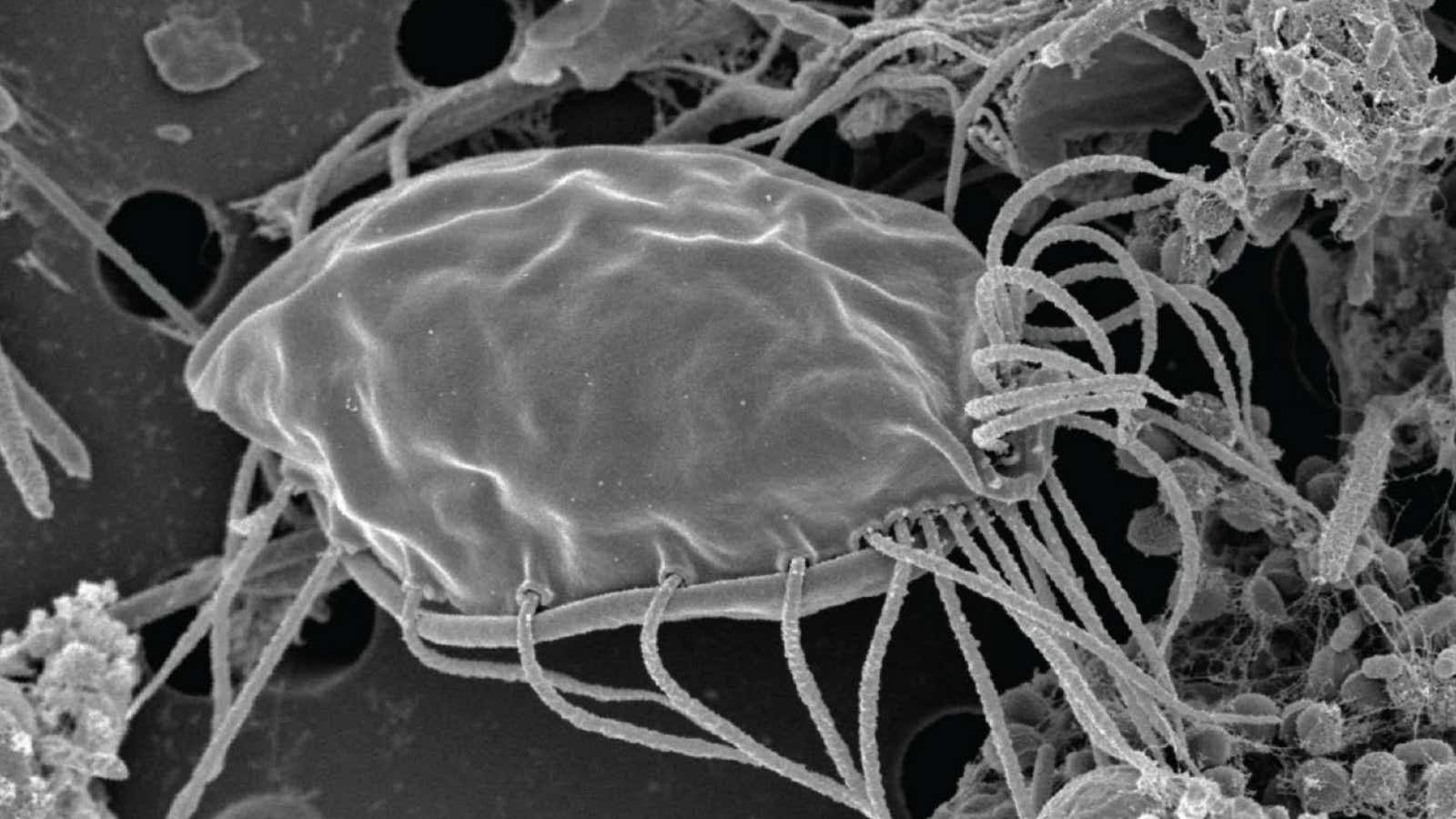Scientists say we’re all eukaryotes: Plants, animals, fungi, and tiny multicelled organisms called protists are the four kingdoms of life, which encompass everything living that we’ve found on Earth.
But a new discovery from Dalhousie University in Nova Scotia, published in Nature, claims to have discovered a fifth kingdom of life—a new kind of eukaryote. The paper describes two organisms, one newly unearthed in Nova Scotia and one discovered in 1988, which upon DNA analysis are more distinct from anything else than previously thought.
The new organism is now called Hemimastix kukwesjijk, named after a greedy, hairy ogre from local Mi’kmaq mythology. The organism flails its hair-like tendrils wildly, curling them around prey and sucking out their juices.
“They represent a major branch… that we didn’t know we were missing,” Dalhousie professor Alastair Simpson, co-author of the new study, told the CBC. “There’s nothing we know that’s closely related to them.”
Graduate student Yana Eglit found the samples while on a hike outside of Halifax, according to the CBC, collecting some dirt on a whim.
Weeks later, after hydrating the soil and looking at the contents under a microscope, she recognized the rare movement of the new organism and investigated further. After watching it hunt, Eglit and another grad student started to feed the organism and produce more of its prey, so they could breed it.
“It really shows how much more there is out there,” Eglit told the CBC.
